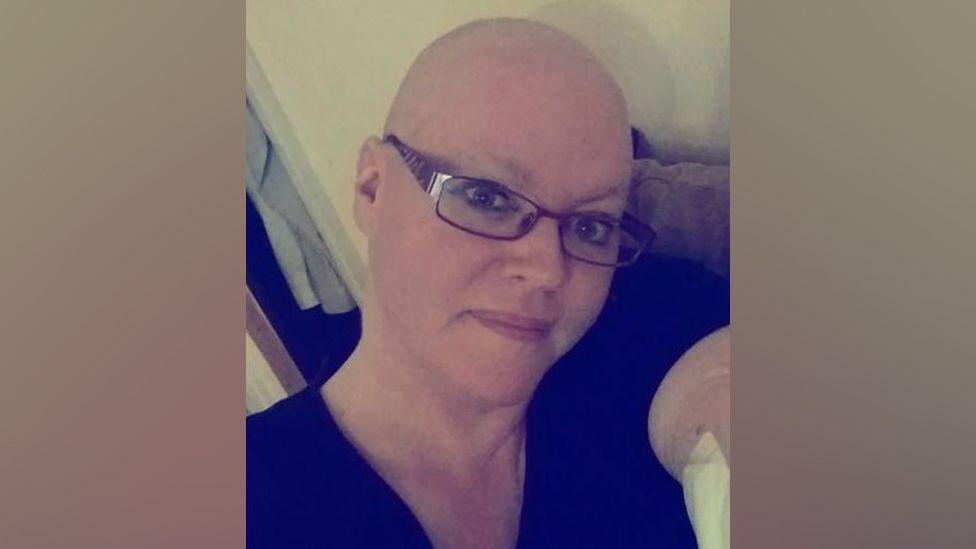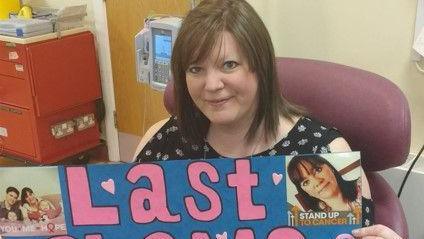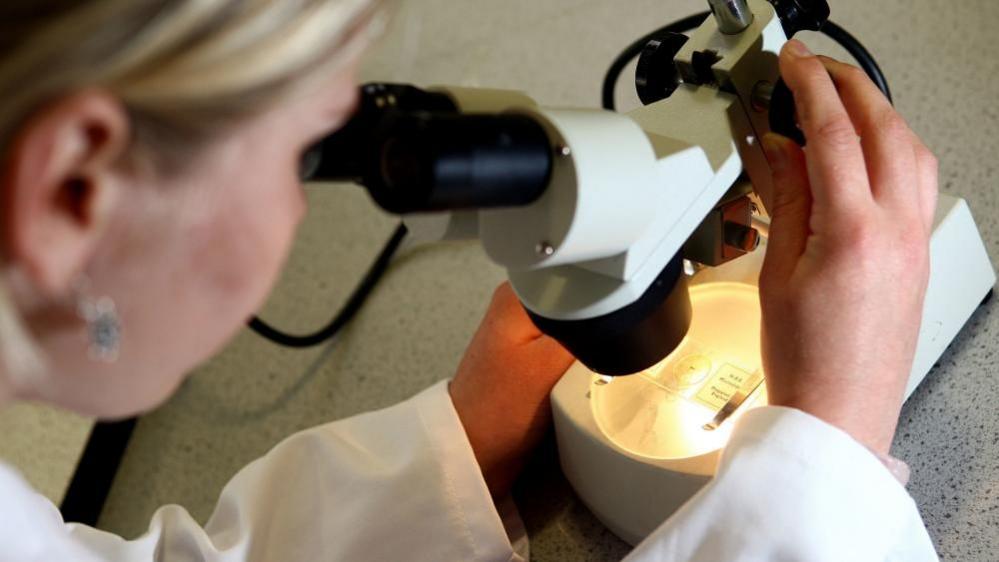'Cancer research saved my life,' says mum-of-two

Rebecca Oldham has shared her story in a bid to help the charity raise more funds for research
- Published
A mother-of-two who carries a gene found to increase the risk of some cancers has told how pioneering research saved her life.
Rebecca Oldham, a 45-year-old breast and cervical cancer survivor, is backing a campaign to raise funds for Cancer Research UK 30 years on from the discovery that faults in BRCA genes were found to increase people's risk.
Ms Oldham, of Accrington in Lancashire, credits this research with her survival after genetic testing carried out in 2015 showed she carried the BRCA1 gene.
"As soon as I heard the words, 'It’s cancer,' I was convinced I wasn’t going to see my children grow up," said Ms Oldham.
She said it had been "devastating" but was "something I've had to come to terms with".
It was comforting to know many preventative measures and targeted drugs were now available because of the landmark discovery about the BRCA genes, she added.
Ms Oldham was offered genetic testing because her aunt had died from breast cancer at the age of 40. Her mother was successfully treated for the disease.
"We have been very open with our children about my cancer treatment and we will discuss the inherited gene with them when they are older," Ms Oldham said.
She said she felt "incredibly lucky to still be here" because she did not think she would be around to see milestones such as her son turning one or her daughter starting primary school.

Rebecca Oldham has had both breast and cervical cancer
About 70% of women with faulty BRCA1 or BRCA2 genes would develop breast cancer by the age of 80, according to Cancer Research.
Ms Oldham is sharing her story during Breast Cancer Awareness Month in a bid to help raise funds for more research.
She said she had not taken the option of preventative surgery to remove her ovaries after the discovery of the BRCA1 gene because she and her partner had both been keen to have another child.
'Breakthrough'
Ms Oldham was diagnosed with breast cancer in 2017 after finding a lump while breastfeeding her four-month-old son.
She had eight months of treatment, including having her left breast removed.
But just months after she had recovered, she was diagnosed with cervical cancer, a cancer type which is not related to BRCA faults.
She had chemotherapy, radiotherapy and brachytherapy, which involves giving radiotherapy to cancer from inside the body.
Ms Oldham, who has a nine-year-old daughter and an eight-year-old son, became very poorly and ended up in hospital with sepsis.
But she made a good recovery, meaning she was able to have her left breast removed as a preventative measure.
She also had further surgery last year in an attempt to remove her ovaries and fallopian tubes.
This was unsuccessful because of scar tissue created by so much treatment.
A consultant is attempting the surgery again on 31 October, she said.
Ms Oldham said BRCA research had "given families like ours hope" but it would not have happened without regular donations from the public to fund research.
Listen to the best of BBC Radio Lancashire on Sounds and follow BBC Lancashire on Facebook, external, X, external and Instagram, external. You can also send story ideas to northwest.newsonline@bbc.co.uk, external
Related topics
More like this story
- Published4 October 2024

- Published29 May 2024
